PROJECT FIELDS
Research projects within the programme are clustered into six Project Fields, comprising grand challenges in which synthetic chemistry is at the core and which will offer a comprehensive training in research skills (both practical and theoretical). Students working in these training areas will assimilate a core set of techniques valuable in investigating cutting-edge research problems but also gain a complementary set of employment-related transferable skills.
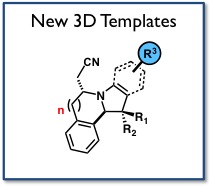
3D Templates For “Lead-Like” Compounds (3DT)
Academic Manager: Dr Paul Brennan
In the last decade, fragment-based drug discovery (FBDD) has emerged as a powerful tool for lead generation in the drug discovery process. There is potential for FBDD to have a significant impact on systems that have been challenging in drug discovery such as allosteric inhibition or protein-protein interactions. However, commercial fragment libraries (with <20 heavy atoms) are predominantly composed of sp2-rich molecules and common heterocycles. In contrast, many successful drugs are inherently complex in shape and constitution which impacts directly on their physical properties (such as molecular weight, polar surface area, hydrogen bond donors and acceptors and rotatable bonds). The advent of new synthetic methodology, which focuses on building complex molecules from diverse building blocks via cascade and multi-component reactions, has the potential to revolutionise FBDD by opening up entirely new areas of chemical space, which have not previously been accessible.
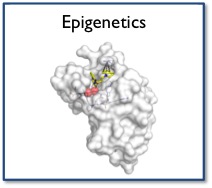
Functional Probes For Epigenetics (FPE)
Academic Manager: Dr Stuart Conway
Epigenetics can be defined as the transfer of genetic information without change in the underlying ‘ATCG’ DNA sequence. In recent years, it has become clear that keys to the epigenetic transfer of information are post-oligomerization modifications to both protein and nucleic acid components of chromatin. The enzymes that catalyse these modifications (and their removal), together with associated recognition domains are of current intense interest from a basic science and a wider anthropological perspective, and have also attracted considerable public interest. Inhibition of epigenetic proteins has already resulted in new pharmaceuticals such as DNA methyltransferase and histone deacylase inhibitors. The Epigenetics Project Field will build upon extensive expertise in Oxford, including involvement in open access probe-compound development with the Structural Genomics Consortium and with multiple companies.
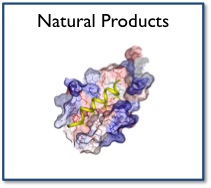
Natural Product Chemistry (NPC)
Academic Manager: Prof Ben Davis FRS
Molecular and macromolecular natural products are evolutionary-optimized scaffolds that provide specific structural leads for probing biological systems. We aim to extend this field beyond the arena of target-oriented synthesis of natural products, encompassing small molecule chemistry alongside synthetic protein and oligonucleotide research. There will be an emphasis on achieving scalable and concise synthetic routes that will enable an extensive exploration and optimization of probe properties.
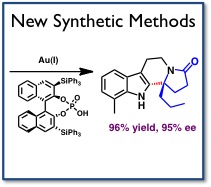
New Synthetic Methods (NSM)
Academic Manager: Prof Tim Donohoe
Chemical synthesis plays the key role in the supply chain of medicines, agrochemicals and materials that modern society demands, and using current methods, the construction of molecules of remarkable complexity can be accomplished. However, new synthetic methods to enable access to desirable target molecules with improved levels of efficiency and selectivity without compromising cost, speed or ease of operation are much in demand. The development of paradigms in fields such as chemical biology, supramolecular and materials chemistry requires new synthetic methods.
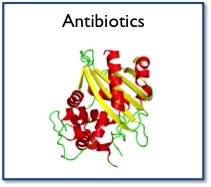
Next Generation Anti-Infectives (NGA)
Academic Manager: Prof Chris Schofield FRS
There is an urgent need for the development of new anti-infectives. Difficulties in developing commercially viable syntheses of complex natural product-like structures and in preparing probe compounds for target validation have had a negative impact on new antibiotic development. In the Next Generation Anti-Infectives Project Field, academic and industrial partners will collaborate to address limitations in anti-infective science, in particular via input by synthetic chemistry into antibiotic development.
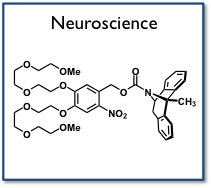
Tools For Neuroscience (TFN)
Academic Manager: Prof Harry Anderson FRS
Understanding the workings of the human brain is one of the great challenges of the 21st century. The fundamental underlying chemical basis of processes such as memory are only just starting to be elucidated, and challenges in neuroscience necessitate the development of a wide variety of molecular tools. This includes techniques such as magnetic resonance imaging (MRI) and positron emission topography (PET), which are dependant on the generation of new synthetic reagents to facilitate real-time observation of the brain (for instance). These new tools also offer real potential for the investigation of neurodegenerative diseases and new approaches to examine processes in cells and the brain with hitherto unrealized resolution.
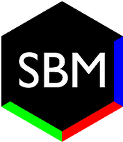 "/>
"/>
